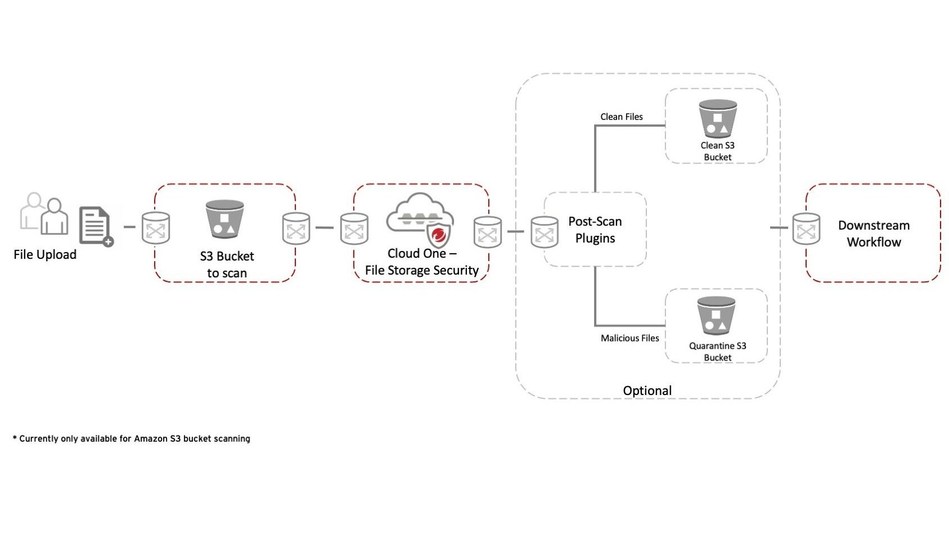Trend Micro Employs Serverless Computing to Scan Cloud Files for Malware
Trend Micro has developed an antimalware tool, based on a lightweight, serverless computing framework, that can scan files for malware before they are stored in cloud services.
Cloud storage services have become a significant attack vector, as cybercriminals increasingly use them to distribute malware throughout an organization.
Today, most organizations are scanning for malware after a file has been added to a cloud service. Mark Nunnikhoven, vice president of cloud research for Trend Micro, said the Trend Micro Cloud One – File Storage Security tool identifies blocks of known bad files, as well as hidden or changing malware variants, before those files are stored. Trend Micro’s serverless computing function leverages event-driven architecture to scan files as they are being loaded into the cloud.
Currently, Trend Micro is making Trend Micro Cloud One – File Storage Security available on Amazon Web Services (AWS) using the AWS Lambda serverless computing platform. Future support for Microsoft Azure blob storage and Google storage also is planned, said Nunnikhoven. Trend Micro already offers a series of tools for scanning malware in services such as Dropbox and Box, but this offering is aimed more at organizations that need to automate file scanning for malware at scale on public clouds, noted Nunnikhoven.
Those capabilities will make it simpler for organizations to align their cloud security efforts more easily around the shared responsibility model that cloud service providers have crafted to address cybersecurity concerns. Under this model, each cloud service provider takes responsibility for securing their own infrastructure, but each organization is responsible for securing the software and files they deploy on those platforms.
Nunnikhoven said Trend Micro Cloud One – File Storage Security is part of a portfolio of cloud security posture management tools that Trend Micro is making available as a service. That approach will simplify automation of cybersecurity workflow processes at a time when cybersecurity expertise remains in short supply.
A recent survey of 3,790 security professionals conducted by (ISC)², a non-profit security certification provider, finds that 40% of organizations say they need more cloud security expertise, followed by risk assessment, analysis and management and security analysis, both at 28%. (ISC)² estimates the a cybersecurity skills shortage in the range of 3.1 million cybersecurity professionals. That estimate is down from a shortage of more than 4 million cybersecurity professionals projected a year ago. Much of that shrinking skills gap is attributed to the economic downturn brought on by the COVID-19 pandemic. However, the survey also notes there are still, on average, only 0.103 cybersecurity professionals per single U.S. business entity. In other words, for every 100,000 U.S. business establishments, the (ISC)² estimates there are approximately 10,300 cybersecurity professionals.
As such, the need to embrace automation is more pressing than ever. As more business processes become dependent on cloud computing services in the wake of the COVID-19 pandemic, cloud computing platforms are further accelerating digital business transformation initiatives, all of which need to be secured.
The challenge, of course, is finding ways to achieve that goal that don’t require hiring a small army of security professionals simply to manually scan files for malware.






